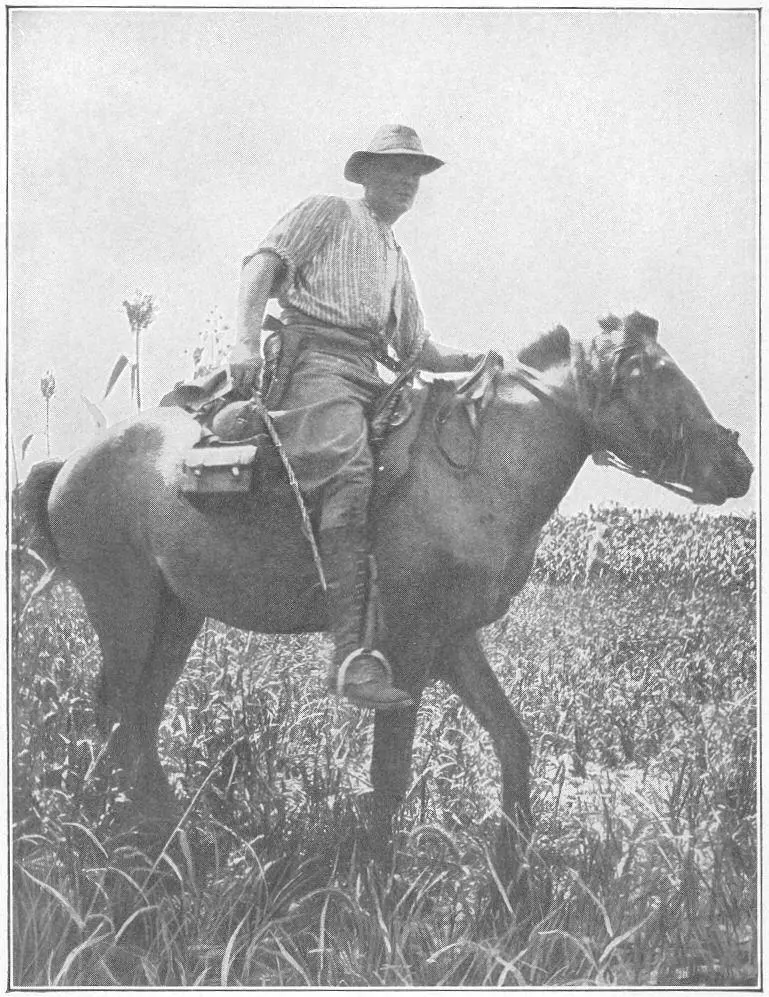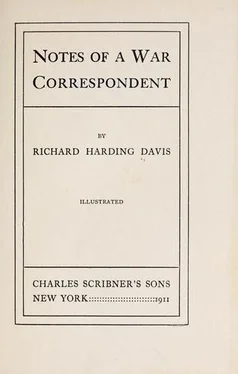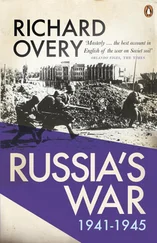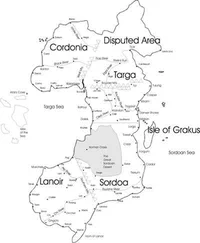Richard Davis - Notes of a War Correspondent
Здесь есть возможность читать онлайн «Richard Davis - Notes of a War Correspondent» весь текст электронной книги совершенно бесплатно (целиком полную версию без сокращений). В некоторых случаях можно слушать аудио, скачать через торрент в формате fb2 и присутствует краткое содержание. Город: New York, Год выпуска: 1911, Издательство: Charles Scribner’s Sons, Жанр: Публицистика, prose_military, на английском языке. Описание произведения, (предисловие) а так же отзывы посетителей доступны на портале библиотеки ЛибКат.
- Название:Notes of a War Correspondent
- Автор:
- Издательство:Charles Scribner’s Sons
- Жанр:
- Год:1911
- Город:New York
- ISBN:нет данных
- Рейтинг книги:5 / 5. Голосов: 1
-
Избранное:Добавить в избранное
- Отзывы:
-
Ваша оценка:
- 100
- 1
- 2
- 3
- 4
- 5
Notes of a War Correspondent: краткое содержание, описание и аннотация
Предлагаем к чтению аннотацию, описание, краткое содержание или предисловие (зависит от того, что написал сам автор книги «Notes of a War Correspondent»). Если вы не нашли необходимую информацию о книге — напишите в комментариях, мы постараемся отыскать её.
Summary by Neeru Iyer
Notes of a War Correspondent — читать онлайн бесплатно полную книгу (весь текст) целиком
Ниже представлен текст книги, разбитый по страницам. Система сохранения места последней прочитанной страницы, позволяет с удобством читать онлайн бесплатно книгу «Notes of a War Correspondent», без необходимости каждый раз заново искать на чём Вы остановились. Поставьте закладку, и сможете в любой момент перейти на страницу, на которой закончили чтение.
Интервал:
Закладка:
When you looked down upon the lines of the English army advancing for three miles across the plain, one could hardly blame them. The burghers did not even raise their Mausers. One bullet, the size of a broken slate-pencil, falling into a block three miles across and a mile deep, seems so inadequate. It was like trying to turn back the waves of the sea with a blow-pipe.
It is true they had held back as many at Colenso, but the defensive positions there were magnificent, and since then six months had passed, during which time the same thirty thousand men who had been fighting then were fighting still, while the enemy was always new, with fresh recruits and re-enforcements arriving daily.
As the English officers at Durban, who had so lately arrived from home that they wore swords, used to say with the proud consciousness of two hundred thousand men back of them: “It won’t last much longer now. The Boers have had their belly full of fighting. They’re fed up on it; that’s what it is; they’re fed up.”
They forgot that the Boers, who for three months had held Buller back at the Tugela, were the same Boers who were rushed across the Free State to rescue Cronje from Roberts, and who were then sent to meet the relief column at Fourteen Streams, and were then ordered back again to harass Roberts at Sannahspost, and who, at last, worn out, stale, heartsick, and hopeless at the unequal odds and endless fighting, fell back at Sand River.
For three months thirty thousand men had been attempting the impossible task of endeavoring to meet an equal number of the enemy in three different places at the same time.
I have seen a retreat in Greece when the men, before they left the trenches, stood up in them and raged and cursed at the advancing Turk, cursed at their government, at their king, at each other, and retreated with shame in their faces because they did so.
But the retreat of the burghers of the Free State was not like that. They rose one by one and saddled their ponies, with the look in their faces of men who had been attending the funeral of a friend and who were leaving just before the coffin was swallowed in the grave. Some of them, for a long time after the greater number of the commando had ridden away, sat upon the rocks staring down into the sunny valley below them, talking together gravely, rising to take a last look at the territory which was their own. The shells of the victorious British sang triumphantly over the heads of their own artillery, bursting impotently in white smoke or tearing up the veldt in fountains of dust.
But they did not heed them. They did not even send a revengeful bullet into the approaching masses. The sweetness of revenge could not pay for what they had lost. They looked down upon the farm-houses of men they knew; upon their own farm-houses rising in smoke; they saw the Englishmen like a pest of locusts settling down around gardens and farm-houses still nearer, and swallowing them up.
Their companions, already far on the way to safety, waved to them from the veldt to follow; an excited doctor carrying a wounded man warned us that the English were just below, storming the hill. “Our artillery is aiming at five hundred yards,” he shouted, but still the remaining burghers stood immovable, leaning on their rifles, silent, homeless, looking down without rage or show of feeling at the great waves of khaki sweeping steadily toward them, and possessing their land.
THE JAPANESE-RUSSIAN WAR
Battles I Did Not See

We knew it was a battle because the Japanese officers told us it was. In other wars I had seen other battles, many sorts of battles, but I had never seen a battle like that one. Most battles are noisy, hurried, and violent, giving rise to an unnatural thirst and to the delusion that, by some unhappy coincidence, every man on the other side is shooting only at you. This delusion is not peculiar to myself. Many men have told me that in the confusion of battle they always get this exaggerated idea of their own importance. Down in Cuba I heard a colonel inform a group of brother officers that a Spanish field-piece had marked him for its own, and for an hour had been pumping shrapnel at him and at no one else. The interesting part of the story was that he believed it.
But the battle of Anshantien was in no way disquieting. It was a noiseless, odorless, rubber-tired battle. So far as we were concerned it consisted of rings of shrapnel smoke floating over a mountain pass many miles distant. So many miles distant that when, with a glass, you could see a speck of fire twinkle in the sun like a heliograph, you could not tell whether it was the flash from the gun or the flame from the shell. Neither could you tell whether the cigarette rings issued from the lips of the Japanese guns or from those of the Russians. The only thing about that battle of which you were certain was that it was a perfectly safe battle to watch. It was the first one I ever witnessed that did not require you to calmly smoke a pipe in order to conceal the fact that you were scared. But soothing as it was, the battle lacked what is called the human interest. There may have been men behind the guns, but as they were also behind Camel Hill and Saddle Mountain, eight miles away, our eyes, like those of Mr. Samuel Weller, “being only eyes,” were not able to discover them.
Our teachers, the three Japanese officers who were detailed to tell us about things we were not allowed to see, gazed at the scene of carnage with well-simulated horror. Their expressions of countenance showed that should any one move the battle eight miles nearer, they were prepared to sell their lives dearly. When they found that none of us were looking at them or their battle, they were hurt. The reason no one was looking at them was because most of us had gone to sleep. The rest, with a bitter experience of Japanese promises, had doubted there would be a battle, and had prepared themselves with newspapers. And so, while eight miles away the preliminary battle to Liao-Yang was making history, we were lying on the grass reading two months’ old news of the St. Louis Convention.
The sight greatly disturbed our teachers.
“You complain,” they said, “because you are not allowed to see anything, and now, when we show you a battle, you will not look.”
Lewis, of the Herald , eagerly seized his glasses and followed the track of the Siberian railway as it disappeared into the pass.
“I beg your pardon, but I didn’t know it was a battle,” he apologized politely. “I thought it was a locomotive at Anshantien Station blowing off steam.”
And, so, teacher gave him a bad mark for disrespect.
It really was trying.
In order to see this battle we had travelled half around the world, had then waited four wasted months at Tokio, then had taken a sea voyage of ten days, then for twelve days had ridden through mud and dust in pursuit of the army, then for twelve more days, while battles raged ten miles away, had been kept prisoners in a compound where five out of the eighteen correspondents were sick with dysentery or fever, and finally as a reward we were released from captivity and taken to see smoke rings eight miles away! That night a round-robin, which was signed by all, was sent to General Oku, pointing out to him that unless we were allowed nearer to his army than eight miles, our usefulness to the people who paid us our salaries was at an end.
While waiting for an answer to this we were led out to see another battle. Either that we might not miss one minute of it, or that we should be too sleepy to see anything of it, we were started in black darkness, at three o’clock in the morning, the hour, as we are told, when one’s vitality is at its lowest, and one which should be reserved for the exclusive use of burglars and robbers of hen roosts. Concerning that hour I learned this, that whatever its effects may be upon human beings, it finds a horse at his most strenuous moment. At that hour by the light of three paper lanterns we tried to saddle eighteen horses, donkeys, and ponies, and the sole object of each was to kick the light out of the lantern nearest him. We finally rode off through a darkness that was lightened only by a gray, dripping fog, and in a silence broken only by the patter of rain upon the corn that towered high above our heads and for many miles hemmed us in. After an hour, Sataki, the teacher who acted as our guide, lost the trail and Captain Lionel James, of the Times , who wrote “On the Heels of De Wet,” found it for him. Sataki, so our two other keepers told us, is an authority on international law, and he may be all of that and know all there is to know of three-mile limits and paper blockades, but when it came to picking up a trail, even in the bright sunlight when it lay weltering beneath his horse’s nostrils, we always found that any correspondent with an experience of a few campaigns was of more general use. The trail ended at a muddy hill, a bare sugar-loaf of a hill, as high as the main tent of a circus and as abruptly sloping away. It was swept by a damp, chilling wind; a mean, peevish rain washed its sides, and they were so steep that if we sat upon them we tobogganed slowly downward, ploughing up the mud with our boot heels. Hungry, sleepy, in utter darkness, we clung to this slippery mound in its ocean of whispering millet like sailors wrecked in mid-sea upon a rock, and waited for the day. After two hours a gray mist came grudgingly, trees and rocks grew out of it, trenches appeared at our feet, and what had before looked like a lake of water became a mud village.
Читать дальшеИнтервал:
Закладка:
Похожие книги на «Notes of a War Correspondent»
Представляем Вашему вниманию похожие книги на «Notes of a War Correspondent» списком для выбора. Мы отобрали схожую по названию и смыслу литературу в надежде предоставить читателям больше вариантов отыскать новые, интересные, ещё непрочитанные произведения.
Обсуждение, отзывы о книге «Notes of a War Correspondent» и просто собственные мнения читателей. Оставьте ваши комментарии, напишите, что Вы думаете о произведении, его смысле или главных героях. Укажите что конкретно понравилось, а что нет, и почему Вы так считаете.












